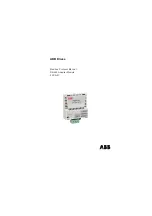
P4: PLC for SINUMERIK 828D
14.3 Programming
Basic Functions
1108
Function Manual, 09/2011, 6FC5397-0BP40-2BA0
14.3.2.6
Data blocks
Data block types
A distinction should be made between three types of data blocks (see also "Addressing range of the target
system [Page 1100]"):
• Data blocks of the user interface
These are used to communicate from the user program with the individual control components and are
created by the system. The user accesses the interface using read and write access operations.
• Special data blocks
They are used for special tasks (e.g. tool manager, service planner) and are available pre-configured in the
Programming Tool PLC828. If the particular functionality is to be used, the corresponding DBs must be
incorporated in the user program.
• User data blocks
Users define there structure and incorporate them in the user program.
Data block properties
A data block is a block for data (initial values, actual values) and comments with the following properties:
• The data are saved in precisely the same sequence as specified by the user. This means that the inner
structure of the data block is defined and if several data blocks are created with the same inner structure (i.e.
the same type), then a certain data is always located at a specific location. This location is called offset and is
the relative length in bytes from the beginning of the data block (DB) up to the actual piece of data.
• Initial values can be assigned to the data. When loaded into the CPU for the first time, the actual values of the
DB are initialized with these initial values. The initial values are also stored in the CPU.
• The actual values of the data can also be read online from the control, changed and also saved with the
project.
The data block structures are, just like the POUs, part of the project. They are compiled, saved, imported or
exported with the project. Further, they are loaded with the project into or out of the target system. Data blocks
only contain actual values. These can be loaded into or out of the target system independent of the project. It is
absolutely necessary that the structure of the data block to be loaded into the target system matches the project
opened in the Programming Tool PLC828. Data blocks are listed like POUs in their own symbol table.
If you change the CPU type for your project, then the existing data blocks are not lost. However, if you select a
CPU in which the data blocks are not available, then you must observe that the variables from the data block are
now displayed in their absolute address (e.g. DB9000.DBB0). Only when the target system is started is a check
made as to whether this address is valid and the program is then possibly not executed.
Note
According to the notation type and addressing, although they are data blocks, these DBs
do not make a distinction between initial and actual values and they are also not part of
the PLC user project. The information provided in the section "Properties of data blocks"
does not apply to these DBs.
















































